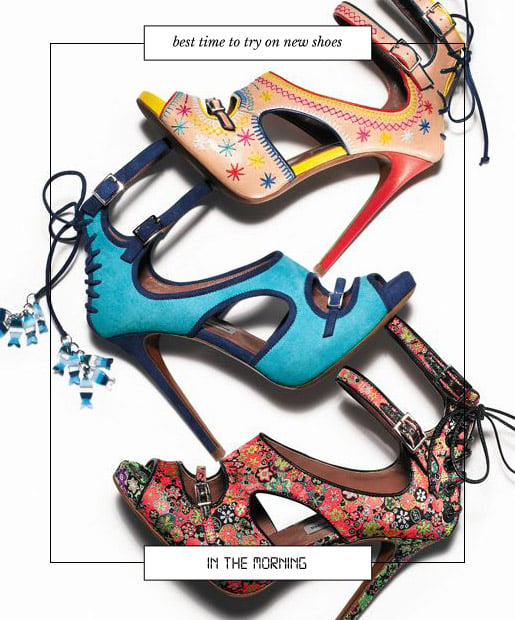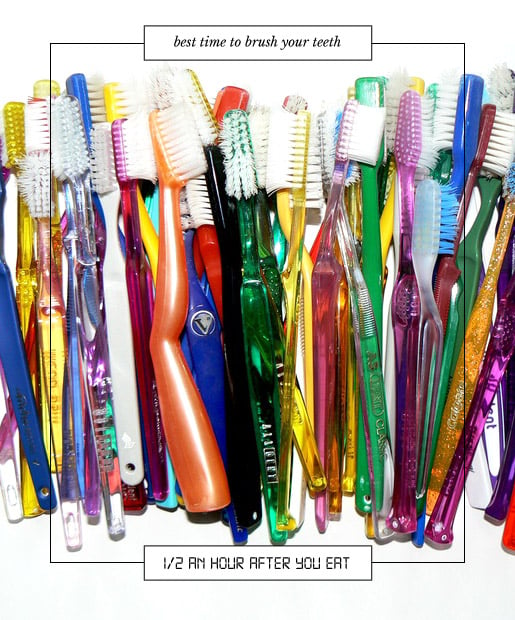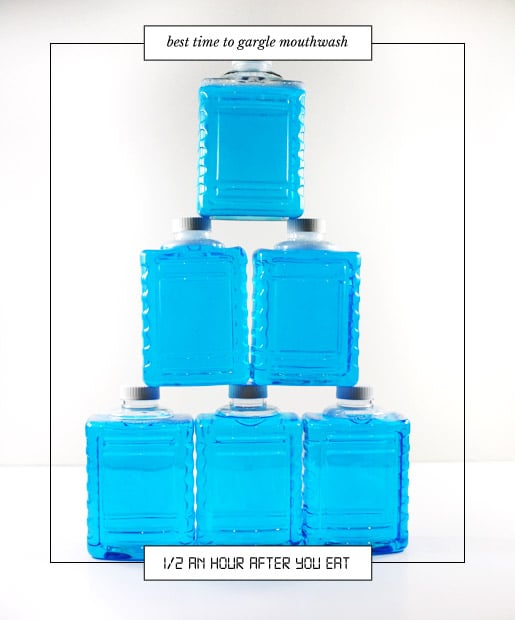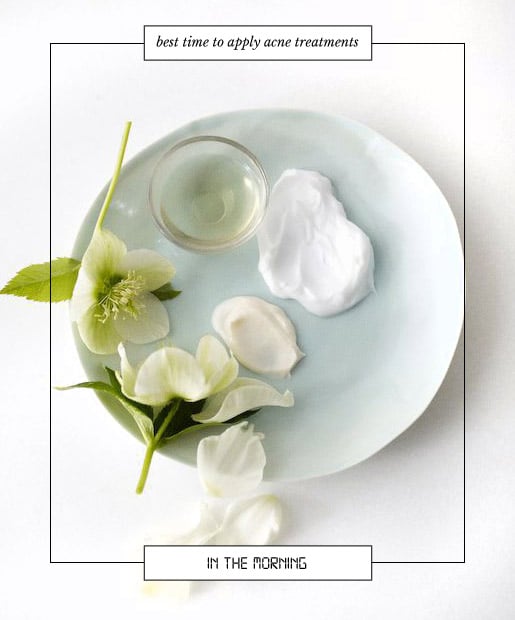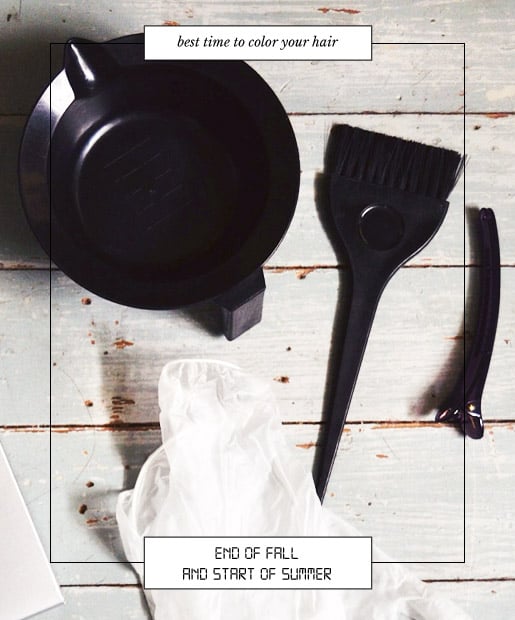When: In the a.m.
Why: Your feet are smallest and truest to their genuine size first thing in the morning because, throughout the day, walking and standing causes your feet and ankles to swell to a bigger size. According to podiatrist Phillip Vasyli, chairman of Vionic shoes, it's important to buy shoes that fit this true size to avoid going up shoe sizes over time.
If you try on new shoes in the afternoon or evening, when your feet are most swollen from bearing your weight all day, you'll find they tend to slip the next morning. "This causes rotation in the ankles and poor distribution of weight, which further swells the feet in an attempt to fill that shoe," says Vasyli. "But when you wear a shoe that fits the foot at its proper size, the shoe actually helps pull or bind the foot together. If you keep the foot in a certain shape, it maintains that shape."
Why: Your feet are smallest and truest to their genuine size first thing in the morning because, throughout the day, walking and standing causes your feet and ankles to swell to a bigger size. According to podiatrist Phillip Vasyli, chairman of Vionic shoes, it's important to buy shoes that fit this true size to avoid going up shoe sizes over time.
If you try on new shoes in the afternoon or evening, when your feet are most swollen from bearing your weight all day, you'll find they tend to slip the next morning. "This causes rotation in the ankles and poor distribution of weight, which further swells the feet in an attempt to fill that shoe," says Vasyli. "But when you wear a shoe that fits the foot at its proper size, the shoe actually helps pull or bind the foot together. If you keep the foot in a certain shape, it maintains that shape."
When: Half an hour after you eat
Why: Seems pretty obvious: You'd want to brush right after you bite into a burger or down extra garlic-y guac, right? Wrong. "You shouldn't brush directly after eating," says cosmetic dentist Dr. Timothy Chase, practicing partner at Smiles NY. "After you eat, the enamel coating of your teeth is in a weakened state due to the high acid content of food and the different enzymes your body releases in saliva to start the digestive process." Instead of heading immediately to the sink, which further strips your teeth of enamel, Chase recommends finishing a meal with a glass of water and waiting at least 30 minutes to allow the enamel to return to normal.
Why: Seems pretty obvious: You'd want to brush right after you bite into a burger or down extra garlic-y guac, right? Wrong. "You shouldn't brush directly after eating," says cosmetic dentist Dr. Timothy Chase, practicing partner at Smiles NY. "After you eat, the enamel coating of your teeth is in a weakened state due to the high acid content of food and the different enzymes your body releases in saliva to start the digestive process." Instead of heading immediately to the sink, which further strips your teeth of enamel, Chase recommends finishing a meal with a glass of water and waiting at least 30 minutes to allow the enamel to return to normal.
When: After you've waited half an hour to brush your teeth
Why: Reaching for some mouthwash in an attempt to freshen your breath as you wait for your enamel to relax? Not so fast. "When the enamel on your teeth is stripped and demineralized after eating, your teeth are also more susceptible to staining," Dr. Chase says. In this case, mouthwash can be more foe than friend. "If your mouthwash is tinted, put off gargling more than half an hour after you've eaten," Chase recommends.
Why: Reaching for some mouthwash in an attempt to freshen your breath as you wait for your enamel to relax? Not so fast. "When the enamel on your teeth is stripped and demineralized after eating, your teeth are also more susceptible to staining," Dr. Chase says. In this case, mouthwash can be more foe than friend. "If your mouthwash is tinted, put off gargling more than half an hour after you've eaten," Chase recommends.
When: In the morning, right after you wake up
Why: According to Downie, the sebum (a.k.a. oil) level in your skin is at its lowest during the night, and at its highest in the morning. Thus, acne-fighting treatments are more effective when you apply them first thing in the morning when your skin is oiliest. However, Downie notes that while your skin's sebum level is higher during the day, skin cells turn over more frequently at night. If you suffer from moderate to severe acne, she advises applying treatments twice a day, morning and night, to take advantage of these daily changes that occur in your skin.
Why: According to Downie, the sebum (a.k.a. oil) level in your skin is at its lowest during the night, and at its highest in the morning. Thus, acne-fighting treatments are more effective when you apply them first thing in the morning when your skin is oiliest. However, Downie notes that while your skin's sebum level is higher during the day, skin cells turn over more frequently at night. If you suffer from moderate to severe acne, she advises applying treatments twice a day, morning and night, to take advantage of these daily changes that occur in your skin.
When: At the end of fall or the start of summer
Why: If you want to switch up your hair color, Jenny Balding, Cutler/Redken styling and grooming expert, suggests using the outside elements to your advantage. "If you are going darker or choosing a reddish color, dyeing your hair in the fall and winter is more ideal -- the sun won't fade your hair like the summer months will. If you're looking to go lighter, do so in the summer, as the sun may lighten up the hair anyway."
Why: If you want to switch up your hair color, Jenny Balding, Cutler/Redken styling and grooming expert, suggests using the outside elements to your advantage. "If you are going darker or choosing a reddish color, dyeing your hair in the fall and winter is more ideal -- the sun won't fade your hair like the summer months will. If you're looking to go lighter, do so in the summer, as the sun may lighten up the hair anyway."



